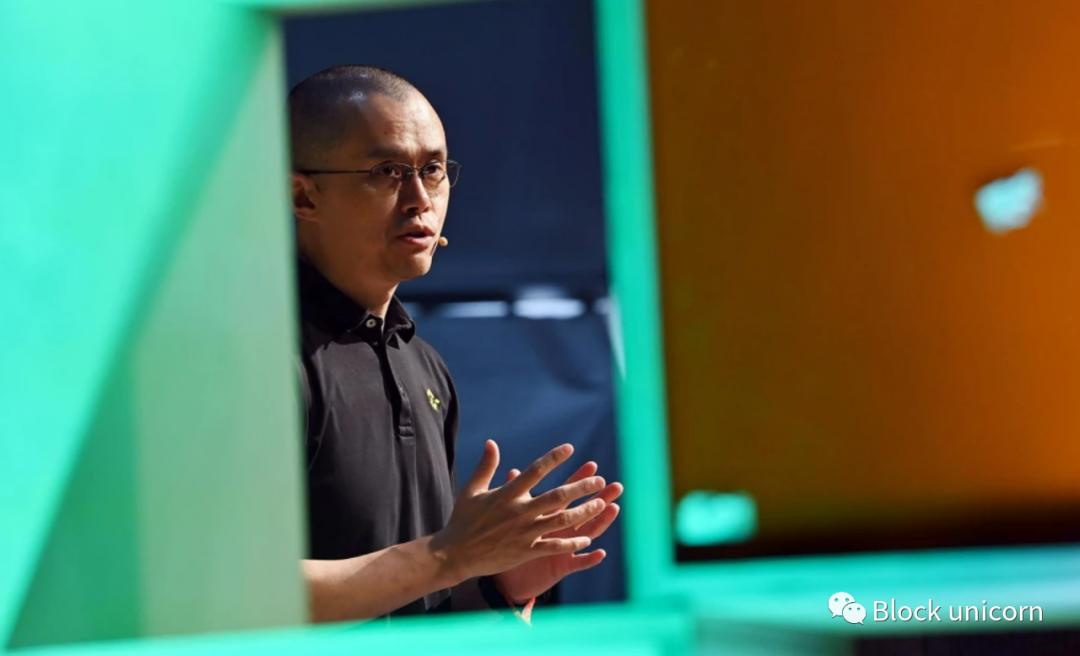Changpeng Zhao had a number of part-time jobs as a teenager, most notably a two-year stint at McDonald's, where he reportedly earned $4.50 an hour. Working at McDonald's is an important part of Changpeng Zhao's saga — the fast-food chain has become something of a meme in the cryptocurrency world (like a failure to trade stocks and coins, and go to Meituan), symbolizing that failed traders will face going to McDonald's Working fate.
He then followed in his academic father's footsteps, studying computer science at McGill University in Montreal. After graduating from college, he worked as a software developer in the trading department of Bloomberg Financial Terminal (Bloomberg). Changpeng Zhao's direct supervisor at Bloomberg described him to me as "a smart software technologist with great people skills," but added that he was "not your typical Wall Street jerk," nor your typical tech sociopath. ".
After leaving Bloomberg, Zhao Changpeng moved to Shanghai and co-founded a financial software company called Fusion Systems. A poker game in 2013 introduced him to Bitcoin, and Changpeng Zhao immediately sold his residence in Shanghai, bought Bitcoin with $1 million, and resigned from Fusion to enter the cryptocurrency industry. For the next four years, he worked at different cryptocurrency startups until co-founding Binance in China in 2017 with the dream of creating an international hub for digital assets.
The key to the platform's success is its role as an onramp to an entire industry: if you want to own some bitcoins or use any cryptocurrency-based web application, you need to convert your non-cryptocurrency into a cryptocurrency. For tens of millions of users around the world, Binance is the place to achieve this goal, with enough ease of use for novices and enough granular analysis tools for professionals. It was an almost immediate success, attracting 120,000 users in its first 45 days of operation. Today, that number has grown to 120 million, and Binance is the largest exchange in the cryptocurrency space. Thanks to his controlling stake in the company, Changpeng Zhao is now one of the 60 richest people in the world.

He Yi and Zhao Changpeng founded Binance in 2017
Changpeng Zhao co-founded Binance with a woman named He Yi, who has held various positions at the exchange. A former Chinese TV announcer, he was named head of Binance Ventures last year, managing $7.5 billion worth of funds. Now, she's the company's chief customer service officer, one of a handful of women in leadership roles in the cryptocurrency space. She once said in an interview. “Forget about your gender and stop focusing too much on the fact that you are in a male or female dominated world. Instead, focus on how to be a good business leader, male or female.” She also has an emotional connection with Changpeng Zhao : The pair have two young children together, though little is known about their relationship.
It quickly became clear that Binance’s leadership played by its own rules. Months after Binance launched and China began threatening the entire cryptocurrency industry with a crackdown, Zhao chose to relocate operations to friendly jurisdictions — first moving the company’s headquarters to Japan and then to Malta. When even Malta’s regulatory requirements seemed to be becoming too restrictive for Binance, the company set out again.
During the rise of SBF, he befriended politicians and journalists, made strategic donations to both parties, provided funding to major media outlets such as ProPublica, Semafor, The Intercept, and secretly backed a cryptocurrency called The Block news media.
Changpeng Zhao took a more direct approach. When Forbes magazine published an exposé in 2020 about Binance’s alleged attempt to evade U.S. regulation, Binance directly filed a lawsuit against Forbes for defamation; a year later, Binance announced plans to buy the soon-to-be listed firm. A $200 million stake in the media giant. Forbes confirmed to me that the investment never came to fruition as plans to go public eventually collapsed, but the announcement itself has demonstrated Changpeng Zhao's real buying power, both in terms of leverage in court and favor in traditional media. There is always the ability to make up for the shortfall with sheer purchasing power. (No wonder Changpeng Zhao is reluctant to be interviewed by traditional outlets like Rolling Stone — through Binance representatives, he declined multiple interview requests.)
However, Changpeng Zhao is not keeping silent. He is very active on his blog and on Twitter, where he feels comfortable with a core group of users who are obsessed with high-stakes cryptocurrency trading and communicate in jargon that can only be understood after years of following along. When an anonymous YouTuber made a meme video implying Binance’s website downtime, Changpeng Zhao cited the meme in the official company policy, showing that he’s good at meme (which also means he’s good at marketing).

Familiarity with cryptocurrency culture has given Zhao a kind of credibility within the industry, although he declined to reveal details about his business structure. Since Binance operates out of the United States, it has so far been exempt from the U.S. regulatory regime and has not required strict disclosures about how it operates. Even though Coinbase claims it has "no headquarters," it is still a public corporation registered in Delaware and therefore legally responsible to its shareholders and customers. Binance, while operating in the US, is not subject to the same set of regulations. While you can find Binance offices in places like Paris, Dubai, and Abu Dhabi, the question of Binance’s real headquarters in 2023 remains unclear. Changpeng Zhao told Fortune: “(Cryptocurrency) has different rules in different places, so we’re not trying to bend the rules or even avoid them, we’re just trying to find a more favorable place.” “We are undergoing a corporate restructuring designed to provide regulators with more clarity about our organization,” a spokesperson told me.)
Changpeng Zhao has been of no confirmed residency, though he said in a rare Crypto Fortune interview earlier this year that he divides his time between Paris and Dubai.
Rohan Gray, a law professor at Williamstown University and a frequent commentator on cryptocurrencies, said: “CZ’s greatest skill is that he’s not committed to anywhere, and that’s because CZ needs the skills needed to be risk-averse, like a crypto prodigal, You can play different roles in different places.”
The implicit bet is that if customers can’t be sure of Binance’s actual corporate location, maybe regulators can’t either. Although in a statement filing charges against Binance in March of this year, U.S. Commodity Futures Trading Commission Chairman Rustin Benham specifically stated, “Claims that there aren’t any exact addresses will not prevent the CFTC from protecting U.S. investors.”
But now, the crypto prodigal son has become the focus of the US government. In March, Senators Chris Van Hollen of Maryland (D), Elizabeth Warren of Massachusetts (D), and Roger Marshall of Kansas (R) co-signed a letter expressing their disapproval of the “Binance’s role in evading regulation, moving assets for criminals and sanctions evaders, and hiding basic financial information” expressed concern. While the company was quick to say the letter was based on "incorrect or incomplete" reports and a "misunderstanding" of the company, it marked the clearest focus lawmakers have had on Binance since the SBF era.
With Changpeng Zhao and his firm still dealing with the aftermath of that halted 24-hour FTX trade, the crypto world was thrown into turmoil, losing much of the momentum that had propped it up in 2021 and early 2022, with various asset prices falling. Businesses are ditching partnerships with cryptocurrencies (remember Instagram’s NFTs?), and U.S. regulators have launched what some see as a targeted campaign to curb the damage done by FTX and the infamous SBF.
The blurred line between Binance Global and Binance US is partly why regulators are concerned. In the first two years of Binance, all customers were directed to the same website, but in 2019, when Binance decided to conduct a more thorough audit of customers in the US, it established a completely separate entity and banned US traders use the original Binance platform. The problem is, thanks to a relatively simple technical bypass (called a VPN), anyone can still theoretically access Binance Global from the US (with lower fees and more permissive ways of identifying users).
Christie Goldsmith Romero, commissioner of the Commodity Futures Trading Commission (CFTC), told me that she sees this pattern of international companies circumventing U.S. regulation, whether intentionally or not, developing across the industry, though she is reluctant to comment. Specific comments on Binance's ongoing case. “I see the same risks as cryptocurrencies in 2008, plus some new ones. If you want to get the benefits of access to the U.S. market, then you have to go through the necessary steps to gain that access, and that requires regulation.” Zhao Changpeng He has always said that Binance is doing everything it can to comply with U.S. laws. Regarding blocking U.S. VPN users from accessing Binance’s ball trading service, Changpeng Zhao wrote in a March blog post that he “doesn’t know of any company using a more comprehensive or effective system than Binance.”

Not everyone is on the same page as to why Binance seems to be such a big focus for the U.S. government right now. For SEC Commissioner Hester Pierce, a Trump appointee who has long defended cryptocurrencies, regulatory ambiguity is actually more the responsibility of the government than the private crypto space. “We’re in a situation of our own creation right now where we don’t have a way to register for entities that want to trade cryptoassets,” she told me. "If we do that, a lot of questions about where the different operations are headquartered will probably have to be answered."
But for others, lawmakers including Senators Warren and Van Hollen, Binance's actions are a real cause for concern — actions that demonstrate a "blatant attempt to evade global financial regulators."
At the beginning of this year, Changpeng Zhao tweeted: "Hope to keep 2023 simple, spend more time on fewer things so that you know what to do and what not to do, 2023 will focus on four things: 1) Education; 2) Compliance; 3) Products and services; 4) Ignore FUD, fake news, attacks, etc. In addition, Changpeng Zhao said that there is no product without security in the encryption industry, and money should never be the goal.
Among them, the 4th option - "Ignore fear, fake news, attacks, etc." - when his business and personal are criticized and questioned, he will tell everyone not to use FUD (meaning panic, doubt, uncertainty), It means telling everyone: "Don't pay attention to anything they say."
May the 4 be with you," he wrote on Star Wars Day. "Ignore the FUD and keep building! He tweeted this in December, during a period when blockchain watchdogs were warning traders about sudden, unexplained withdrawals of billions of dollars from the platform. The report of the missing $1 billion was called "Fear, Uncertainty, and Doubt"). When a similar situation happened again a few months later in response to a CFTC lawsuit, Changpeng Zhao tweeted about "traditional media writing wrong narratives" tweets.
However, the entire industry held its breath as Changpeng Zhao dodged and avoided questions. Changpeng Zhao is not only responsible for Binance, but the cryptocurrency industry cannot afford a blow to the reputation of SBF. “In a way, FTX’s bankruptcy so spectacularly helped remove some of the worst corruption problems and took a hit that the rest of the ecosystem was unwilling to take and tried to avoid,” speculated Rohan Gray. “So Changpeng Zhao is buying more time on this, but I see no reason to think that the underlying health of their business model is better.”
Binance’s market share remains huge — two-thirds of all cryptocurrency transactions take place on its site — but for Gray and other commentators, the regulatory grace period may be coming to an end. Facing mounting threats, CZ has hired white-collar defense attorney Latham & Watkins to represent him personally and added hundreds of employees to Binance’s compliance department. “Binance sees itself as a tech company, which may help explain its approach, where they break some principles, alluding to those in the tech world,” the firm’s head of financial crime compliance recently told The New York Times. Move, break all the rules", all exchanges do it".








